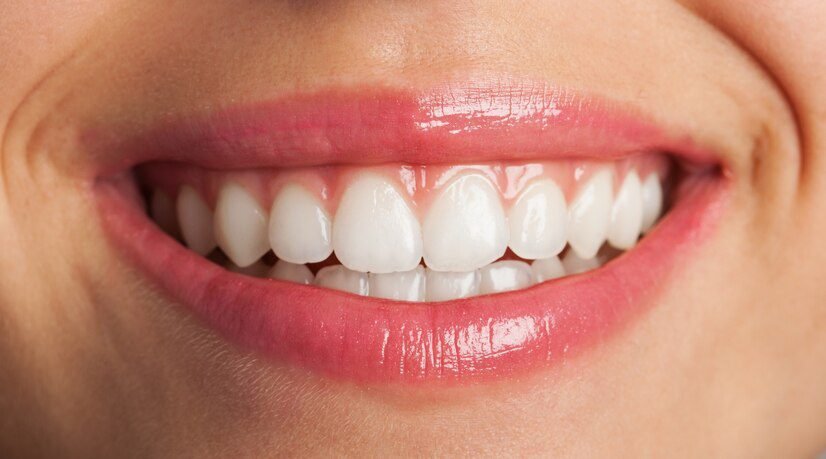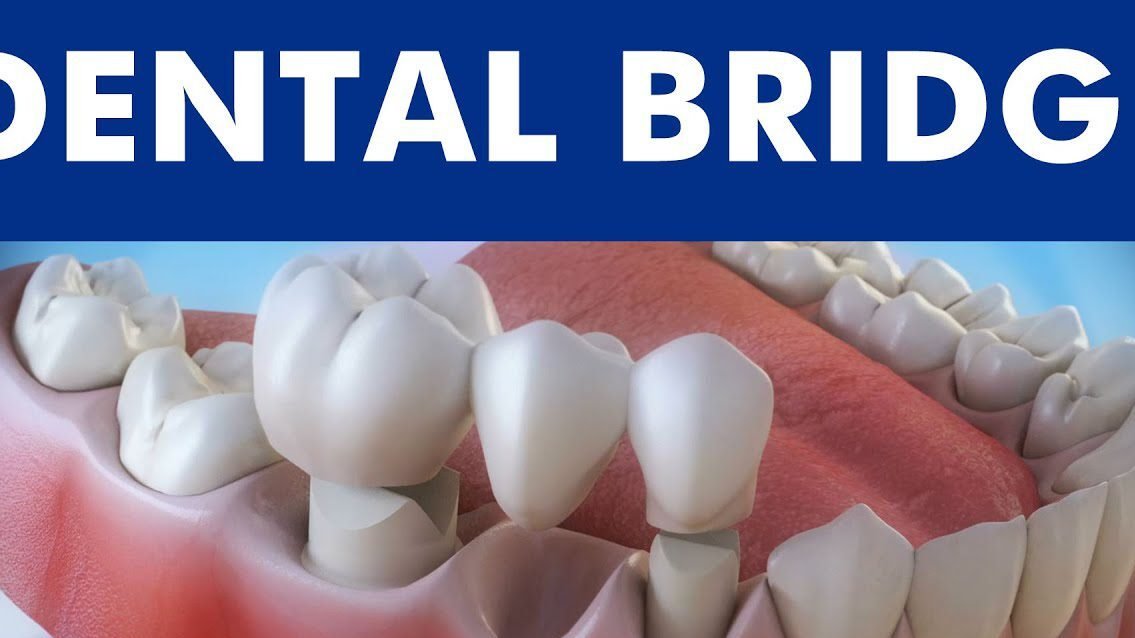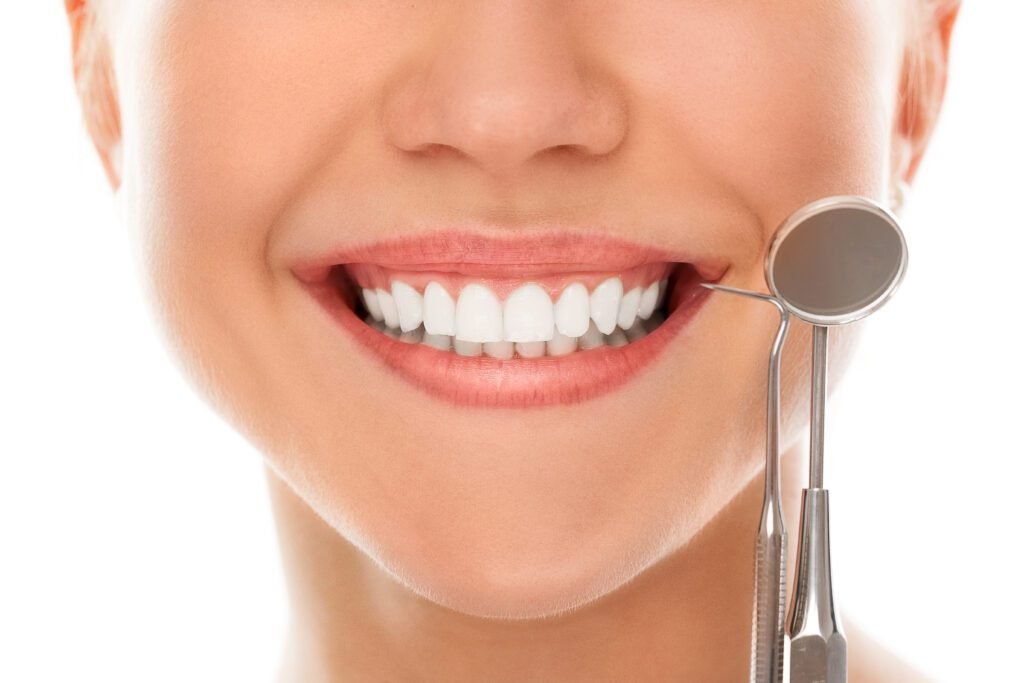Table of Contents
Dental Treatments for a Beautiful and Healthy Smile: A Comprehensive Guide
Having a beautiful and healthy smile is a goal that many people aspire to. Fortunately, there are a variety of dental treatments available to help achieve and maintain that goal. From preventive care to cosmetic enhancements, the field of dentistry offers a comprehensive range of options to address every aspect of dental health.
One of the most fundamental aspects of maintaining a beautiful and healthy smile is regular dental cleanings. These cleanings not only remove plaque and tartar buildup, but they also allow the dentist to assess the overall health of your teeth and gums. Additionally, dental cleanings can help prevent gum disease, cavities, and other oral health issues. It is recommended to visit your dentist every six months for a thorough cleaning and examination.

In addition to regular cleanings, dental treatments can also address specific concerns such as misaligned teeth or tooth discoloration. Orthodontic treatments, like braces or clear aligners, can effectively correct misaligned teeth, not only improving the appearance of your smile but also enhancing dental function. Teeth whitening treatments, on the other hand, can help brighten your teeth and enhance your confidence.
From preventive care to restorative treatments, the field of dentistry offers a wealth of options to help you achieve and maintain a beautiful and healthy smile. Consulting with a dentist is the first step in determining the best treatment plan for your specific needs. With their expertise and guidance, you can embark on a journey toward a smile that not only looks great but also promotes optimal oral health.
– The Power of Dental Implants: Regain Confidence and Functionality
Dental implants have revolutionized the field of dentistry, offering individuals the opportunity to regain not only their confidence but also their functionality. Unlike traditional dentures or bridges, dental implants provide a permanent solution for missing teeth.
The strength and stability of dental implants are unmatched, as they are firmly anchored into the jawbone. This allows for a secure fit and ensures that the implant feels and functions just like a natural tooth. With dental implants, patients can enjoy eating their favorite foods without restrictions, and speak and smile with renewed confidence.

– Correcting Misaligned Teeth: The Benefits of Orthodontic Treatments
Orthodontic treatments have proven to be a game-changer for individuals with misaligned teeth. Not only do these treatments help improve the aesthetics of their smiles, but they also offer a host of other benefits. One of the most significant advantages of orthodontic treatments is the enhanced functionality it provides. When teeth are properly aligned, it becomes easier to bite, chew, and speak, leading to improved oral health and overall well-being.
In addition to improved functionality, orthodontic treatments also offer long-term oral health benefits. Misaligned teeth can often lead to an increased risk of tooth decay, gum disease, and even tooth loss. By correcting the alignment, orthodontic treatments make it easier to maintain proper oral hygiene. Straight teeth are easier to clean, reducing the accumulation of plaque and tartar. This, in turn, lowers the chances of developing oral health problems down the line. Furthermore, orthodontic treatments can help alleviate issues such as jaw pain or headaches caused by misaligned bites, improving the overall quality of life for patients.
Overall, orthodontic treatments provide a multitude of benefits beyond just straightening teeth. From enhanced functionality to improved oral health, correcting misaligned teeth through orthodontic treatments can have a positive and lasting impact on an individual’s smile and overall well-being.
– Transforming Smiles with Porcelain Veneers: Enhance Aesthetics and Function
Porcelain veneers have become a popular choice for transforming smiles and enhancing both aesthetics and functionality. These thin shells of ceramic material are custom-made to cover the front surface of the teeth, effectively hiding imperfections and creating a natural-looking, beautiful smile.
One of the biggest advantages of porcelain veneers is their ability to address multiple cosmetic concerns at once. From chipped or cracked teeth to discoloration or gaps between teeth, veneers can provide a comprehensive solution. The veneers are designed to match the color and shape of your existing teeth, ensuring a seamless blend with your natural smile.
In addition to their aesthetic benefits, porcelain veneers can also improve the functionality of your teeth. They can correct minor misalignments, giving you a more even bite and reducing the risk of jaw problems or excessive wear on certain teeth. Veneers can also strengthen weakened or worn-down teeth, providing an added layer of protection against further damage.
Overall, porcelain veneers offer a versatile and effective solution for those looking to enhance their smile. With their ability to improve both aesthetics and functionality, these dental restorations can help patients regain their confidence and achieve the smile of their dreams.

– Achieving a Beautiful Smile with Teeth Whitening: Brighten Your Confidence
Teeth whitening is a popular dental treatment that can greatly enhance the appearance of your smile and boost your self-confidence. It is a safe and effective procedure that removes stains and discoloration from the teeth, giving them a brighter and more youthful appearance.
One of the main benefits of teeth whitening is its ability to improve your confidence. When your teeth are beautifully white, you are more likely to smile and show off your pearly whites. This can have a positive impact on your overall self-esteem and how others perceive you. Plus, a confident smile can make a great first impression, whether in social or professional settings.
Professional teeth whitening treatments are superior to over-the-counter products in terms of both safety and results. Dentists use specially formulated whitening gels that are stronger and more effective than what you can find in stores. Additionally, they take precautions to protect your gums and other oral tissues during the whitening process, ensuring a comfortable and pain-free experience.
If you are looking to achieve a beautiful, bright smile that will boost your confidence, consider undergoing professional teeth whitening. Not only will the procedure effectively remove stains and discoloration, but it will also give you the bright smile you have always wanted.
– Restoring Damaged Teeth with Dental Crowns: Regain Strength and Functionality
Dental crowns are one of the most effective and versatile treatments available for restoring damaged teeth. Whether a tooth is cracked, broken, or severely decayed, a dental crown can help regain both strength and functionality.
The process of getting a dental crown involves removing any decay or damage from the tooth, and then carefully reshaping it to create a stable foundation for the crown. The crown is custom-made to fit perfectly over the prepared tooth, providing a protective and natural-looking covering. This restoration not only restores the tooth’s strength but also helps to restore its functionality, allowing patients to chew and speak comfortably once again.
Dental crowns are made from a variety of durable materials such as porcelain, metal, or a combination of both. Each material has its unique advantages, and the choice will depend on the individual’s specific needs and preferences. Regardless of the material used, dental crowns are designed to blend seamlessly with the surrounding teeth, ensuring a natural and aesthetically pleasing result. With proper care and maintenance, dental crowns can last for many years, providing patients with a long-term solution for restoring damaged teeth.

– The Importance of Regular Dental Cleanings: Maintaining Oral Health
Regular dental cleanings are an essential part of maintaining optimal oral health. While practicing good oral hygiene at home is crucial, professional cleanings can help prevent and detect any potential dental problems. During a dental cleaning, a trained hygienist will remove plaque buildup, tartar, and stains that brushing and flossing alone cannot eliminate. This thorough clean not only leaves your teeth feeling fresh and smooth, it also helps prevent the development of gum disease and tooth decay.
One of the main benefits of regular dental cleanings is the prevention of gum disease. Gum disease, also known as periodontal disease, is a bacterial infection that affects the tissues surrounding and supporting the teeth. If left untreated, gum disease can lead to tooth loss and other serious oral health issues. However, routine cleanings can help remove plaque and tartar from the gumline, reducing the risk of gum disease. Additionally, during a dental cleaning, the hygienist will evaluate your gums for any signs of inflammation or infection, allowing early intervention and treatment if necessary. Maintaining healthy gums is not only vital for oral health, but it can also contribute to your overall well-being.
– Understanding the Benefits of Gum Disease Treatments: Preserving Your Smile
Gum disease, also known as periodontal disease, is a serious oral health condition that affects the gums and supporting structures of the teeth. It is a common condition that can lead to severe consequences if left untreated. Gum disease treatments play a crucial role in preserving your smile and maintaining your overall oral health.
One of the benefits of gum disease treatments is that they help prevent the progression of the disease. Without proper intervention, gum disease can advance and cause irreversible damage to the gums and bones that support the teeth. Treatment options such as scaling and root planing, antibiotic therapy, and surgical procedures can effectively remove the infection-causing bacteria and promote the healing of damaged tissues. By addressing gum disease in its early stages, you can prevent further deterioration and protect your smile.
Another benefit of gum disease treatments is the improvement of your oral health. Gum disease is not only limited to the mouth but can also have implications for your overall well-being. Research has linked gum disease to various systemic conditions, including heart disease, diabetes, stroke, and respiratory problems. By treating gum disease, you can reduce inflammation and infection in the mouth, which in turn may lower the risk of developing or worsening these systemic diseases. Preserving your smile through gum disease treatments is, therefore, a vital step in maintaining your overall health.
In the next section, we will explore the different treatment options available for gum disease and discuss their effectiveness in preserving your smile and enhancing your oral health. It is important to note that early detection and prompt treatment are key to achieving the best outcomes in gum disease management. Regular visits to your dentist for comprehensive check-ups and professional cleanings are essential in preventing and addressing gum disease.
| Benefits of Gum Disease Treatments | Description |
|---|---|
| Prevention of Tooth Loss | Treatments such as scaling and root planing can help remove plaque and tartar buildup, preventing further damage to the gums and supporting structures, thus reducing the risk of tooth loss. |
| Reduction of Gum Inflammation | Treatments target the underlying cause of gum inflammation, such as bacterial infection. This helps reduce redness, swelling, and discomfort associated with gum disease. |
| Preservation of Bone Structure | Advanced gum disease can lead to bone loss around the teeth. Treatments aim to halt the progression of bone loss and preserve the bone structure that supports the teeth. |
| Improved Oral Health | Gum disease treatments contribute to overall oral health by reducing the risk of infections, decay, and tooth loss. They help maintain healthy gums and support structures. |
| Prevention of Systemic Health Complications | Gum disease has been linked to various systemic health issues like cardiovascular disease and diabetes. Treating gum disease can help lower the risk of these complications. |
| Enhancing Aesthetic Appearance | Gum disease treatments can address issues like gum recession, which can affect the appearance of the smile. By preserving gum tissue and bone, treatments help maintain a healthy and aesthetically pleasing smile. |
| Reduction of Bad Breath (Halitosis) | Gum disease often contributes to persistent bad breath. By addressing the underlying cause of the gum disease, treatments can help reduce halitosis and improve breath freshness. |
| Improved Quality of Life | By preserving oral health and addressing gum disease, treatments can improve overall well-being, comfort, and confidence in daily activities, including eating, speaking, and smiling. |
– Preventing Tooth Decay with Dental Sealants: Shielding Your Teeth
Dental sealants play a crucial role in preventing tooth decay and protecting the overall oral health. These thin, plastic coatings are applied to the surfaces of the back teeth (molars and premolars) to create a strong barrier that shields the teeth from harmful bacteria and acids. This preventive measure is especially beneficial for children and teenagers, as they are more prone to cavities in their early years of teeth development.
The process of applying dental sealants is quick, painless, and non-invasive, making it an ideal solution for individuals of all ages. Once the teeth are thoroughly cleaned and dried, the sealant is gently brushed onto the chewing surfaces, where it bonds with the natural tooth structure. This protective layer acts as a physical barrier, preventing food particles and bacteria from settling into the deep grooves and crevices of the teeth, which are often challenging to clean with regular brushing and flossing alone.
By forming a shield against tooth decay, dental sealants significantly reduce the risk of cavities in the treated areas. According to studies, sealants can reduce the incidence of cavities in children by up to 80%. These statistics highlight the effectiveness of this preventive measure and its potential to contribute to long-term dental health. Regular dental check-ups and maintenance ensure that the sealants remain intact and functional, providing optimal protection for the teeth against decay.
– The Role of Root Canal Therapy in Saving Natural Teeth: Preserving Oral Health
Root canal therapy is a vital procedure that plays a critical role in preserving the oral health of individuals. This treatment aims to save natural teeth that have been severely affected by deep decay or infection, helping patients avoid tooth extraction. By removing the infected pulp, cleaning the root canal, and sealing it off, root canal therapy not only alleviates pain but also prevents the spread of infection to surrounding teeth and tissues.
Preserving natural teeth is of utmost importance for maintaining oral health in the long term. Losing a tooth can lead to a variety of negative consequences, including misalignment of adjacent teeth, difficulty chewing and speaking, and even bone loss in the jaw. With root canal therapy, patients can save their natural teeth, ensuring the continued functionality and aesthetics of their smile.
However, it is essential to note that root canal therapy is a specialized procedure that should be performed by a qualified dentist. Dentists who specialize in endodontics have the necessary skills, expertise, and training to carry out this procedure safely and effectively. Seeking treatment from a trusted dental professional will ensure that the root canal therapy is performed with precision, leading to the preservation of natural teeth and optimal oral health.
– Exploring the Advantages of Dental Bridges: Filling the Gap
Dental bridges are a reliable and effective solution for filling the gap caused by missing teeth. By bridging the space between two natural teeth, dental bridges not only restore your smile but also provide several advantages for your oral health.
One of the primary benefits of dental bridges is improving your ability to chew and speak properly. When a tooth is missing, the surrounding teeth can start to shift and tilt, affecting your bite and speech. By filling the gap with a dental bridge, you can maintain proper alignment and reduce the risk of further dental issues.

Additionally, dental bridges can help preserve the shape of your face. When teeth are missing, it can cause the facial muscles to sag, resulting in a sunken appearance. By replacing missing teeth with a bridge, you can restore the natural contour of your face, enhancing your overall aesthetics and boosting your self-confidence.
Overall, dental bridges offer a reliable and durable solution for filling the gap created by missing teeth. By improving your oral health, enhancing your appearance, and restoring functionality, dental bridges play a crucial role in maintaining a beautiful smile. Consult with your dentist to determine if dental bridges are the right option for you.
– The Benefits of Full Mouth Reconstruction: Restoring Function and Aesthetics
Full mouth reconstruction is a comprehensive dental treatment aimed at restoring both the functionality and aesthetics of the mouth. It is an ideal option for individuals with extensive dental issues such as missing or broken teeth, misaligned bites, and damaged gums. By addressing multiple dental concerns, full mouth reconstruction offers numerous benefits that can greatly improve an individual’s overall oral health.
One of the key benefits of full mouth reconstruction is the restoration of proper dental function. When teeth are missing or damaged, it can become difficult to eat, speak, or even smile confidently. Full mouth reconstruction utilizes various dental procedures such as dental implants, crowns, bridges, and dentures to replace missing teeth and restore proper biting and chewing capabilities. This not only enhances the ability to eat and speak comfortably but also alleviates strain on the remaining natural teeth, preventing further damage.
In addition to restoring dental function, full mouth reconstruction also focuses on improving the aesthetics of the smile. An attractive smile can have a powerful impact on a person’s self-confidence and overall well-being. Through procedures such as dental veneers, teeth whitening, and cosmetic bonding, full mouth reconstruction can greatly enhance the appearance of the teeth, creating a beautiful and natural-looking smile. This not only boosts self-esteem but also improves social interactions and professional prospects.
Overall, full mouth reconstruction provides a holistic approach to addressing dental issues, offering both functional and aesthetic benefits. By restoring proper dental function and creating an attractive smile, individuals can experience improved oral health, increased self-confidence, and enhanced overall quality of life.
| Benefit | Description |
|---|---|
| Restores Functionality | Addresses issues such as chewing difficulties, speech problems, and bite alignment. |
| Improves Oral Health | Treats dental problems like decay, gum disease, and structural issues to promote better oral health. |
| Enhances Aesthetics | Improves the appearance of the teeth and smile, boosting confidence and self-esteem. |
| Addresses Multiple Dental Issues | Treats various dental issues simultaneously, including missing teeth, misalignment, and damage. |
| Customized Treatment Plan | Tailored to individual needs, considering the patient’s oral health, goals, and preferences. |
| Long-lasting Results | Offers durable solutions that can last for years with proper care and maintenance. |
| Restores Facial Structure | Addresses issues with jaw alignment and bone loss, which can impact facial aesthetics and function. |
| Improves Overall Quality of Life | Enables patients to enjoy eating, speaking, and smiling comfortably and confidently. |
– Reviving Smiles with Dentures: Regain Confidence and Functionality
Dentures have long been a trusted solution for individuals facing tooth loss. These removable dental appliances are designed to not only restore functionality but also to bring back confidence in a beautiful smile. Dentures are custom-made to fit each patient’s unique oral structure, providing a comfortable and secure fit.
One of the key benefits of dentures is the ability to regain functionality. With missing teeth, basic activities such as speaking and eating can become challenging. Dentures enable individuals to enjoy a wide range of foods and speak clearly, enhancing their quality of life. Whether it’s biting into an apple or engaging in a conversation without any speech impediments, dentures play a crucial role in restoring these basic daily functions.
In addition to functionality, dentures also offer a significant boost in confidence. Missing teeth can often make individuals feel self-conscious about their appearance, leading to a decline in self-esteem. Dentures have the power to completely transform a smile, providing a natural-looking and aesthetically pleasing set of teeth. By restoring a complete and beautiful smile, dentures give individuals the confidence to socialize, laugh, and smile without any hesitation.
– Enhancing Your Smile with Cosmetic Bonding: Repairing Imperfections
Cosmetic bonding is a popular and effective dental treatment that can dramatically enhance the appearance of your smile by repairing imperfections. This non-invasive procedure involves the application of a tooth-colored resin material to the affected teeth, which is then carefully shaped and bonded to the tooth surface. With cosmetic bonding, you can say goodbye to chips, cracks, gaps, and stains that have been affecting your smile.
One of the major advantages of cosmetic bonding is its ability to produce immediate results. Unlike other dental treatments that may require multiple visits or extensive procedures, cosmetic bonding can typically be completed in just one visit to your dentist. This makes it an ideal option for individuals who want to improve their smile quickly, whether it’s for a special occasion or simply to boost their self-confidence. Furthermore, cosmetic bonding is a more affordable alternative to procedures such as dental veneers or inlays/onlays, making it a great option for individuals on a budget who still want to achieve a stunning smile.
In addition to its speed and affordability, cosmetic bonding also offers impressive aesthetic results. The resin material used in the procedure is carefully selected to match the natural color of your teeth, ensuring a seamless blend and a natural-looking smile. Moreover, the material is highly versatile and can be shaped and contoured to achieve the desired shape, length, and overall appearance. Whether you need to correct a small chip, close a gap, or repair a stained tooth, cosmetic bonding can effectively address a wide range of imperfections, leaving you with a smile that you can proudly show off.
– The Impact of Invisalign: Straightening Teeth Discreetly
Invisalign is a revolutionary orthodontic treatment that has transformed the way we straighten teeth discreetly. Unlike traditional braces, which use metal wires and brackets, Invisalign utilizes a series of clear, removable aligners to gradually move teeth into their desired positions. This innovative treatment option has become increasingly popular among patients of all ages, including adults who may have been hesitant to pursue orthodontic treatment in the past.
One of the biggest impacts of Invisalign is its ability to straighten teeth without drawing attention to the treatment. The clear aligners are virtually invisible, making it difficult for others to even notice that you are undergoing orthodontic treatment. This is particularly beneficial for individuals who may feel self-conscious about wearing traditional braces, whether due to personal or professional reasons. With Invisalign, you can confidently go about your daily activities without feeling self-conscious or worried about your appearance.
– The Role of Dental Fillings in Restoring Dec
Dental fillings play a crucial role in restoring decayed teeth to their original functionality and appearance. When tooth decay occurs, it creates cavities that need to be addressed promptly to prevent further damage. Dental fillings serve as a solution to fill these cavities and restore the tooth’s structure.
The process of dental fillings involves removing the decayed portion of the tooth, cleaning the area, and then filling it with a suitable material. The most commonly used materials for fillings are composite resin and amalgam. Composite resin fillings are tooth-colored and provide a natural-looking result, making them popular among patients. Amalgam fillings, on the other hand, are silver in color and are known for their durability.
In addition to restoring the structure of decayed teeth, dental fillings also help prevent the progression of tooth decay. By filling the cavity, the filling material acts as a barrier, preventing bacteria from entering the tooth and causing further damage. This preventive aspect of dental fillings is crucial in maintaining oral health and preventing the need for more extensive treatments such as root canals or extractions.
Overall, dental fillings are an essential part of restorative dentistry, allowing dentists to effectively treat tooth decay and preserve the natural tooth. By addressing decayed teeth promptly and restoring their structure, dental fillings contribute to maintaining oral health and preventing the need for more invasive procedures.
What are dental fillings?
Dental fillings are materials used by dentists to fill cavities or repair damaged teeth.
How are dental fillings placed?
First, the dentist removes the decayed portion of the tooth. Then, the area is cleaned and prepared before the filling material is applied and shaped to restore the tooth’s natural shape.
What materials are used for dental fillings?
Dental fillings can be made from various materials, including amalgam (silver fillings), composite resin (tooth-colored fillings), gold, or porcelain.
Are dental fillings permanent?
Dental fillings are not considered permanent and may need to be replaced over time due to wear and tear or further decay.
How long does it take to get a dental filling?
The time required for a dental filling depends on the size and location of the cavity. Generally, the procedure can be completed in a single dental visit.
Are dental fillings painful?
The dentist will administer local anesthesia to numb the area before placing the dental filling, so the procedure should not be painful. Some patients may experience mild discomfort or sensitivity after the anesthesia wears off.
How long do dental fillings last?
The lifespan of dental fillings can vary depending on the material used and individual oral hygiene practices. On average, composite resin fillings last between 5 to 10 years, while amalgam fillings can last up to 15 years or longer.
Can dental fillings fall out?
While rare, dental fillings can become loose or fall out if not properly cared for or if there is additional decay or damage to the tooth.
How can I take care of my dental fillings?
To maintain the longevity of dental fillings, it is important to practice good oral hygiene, including regular brushing, flossing, and visiting the dentist for routine check-ups and cleanings.
Can dental fillings be replaced?
Yes, dental fillings can be replaced if they are damaged, worn out, or if there is recurrent decay. It is best to consult with a dentist to determine the most appropriate course of action.












